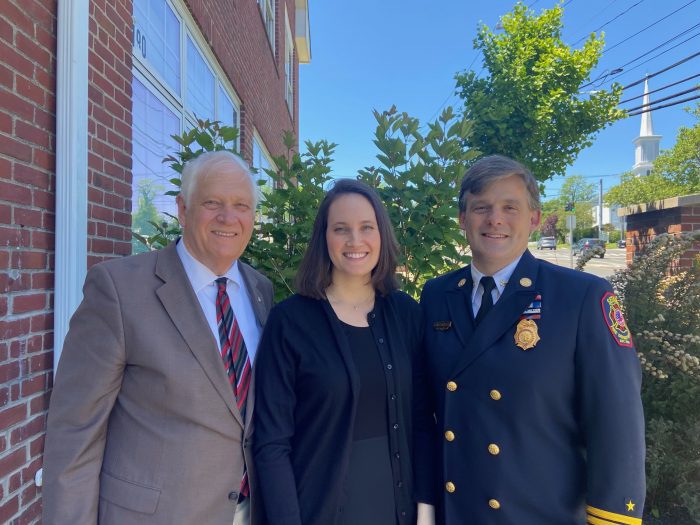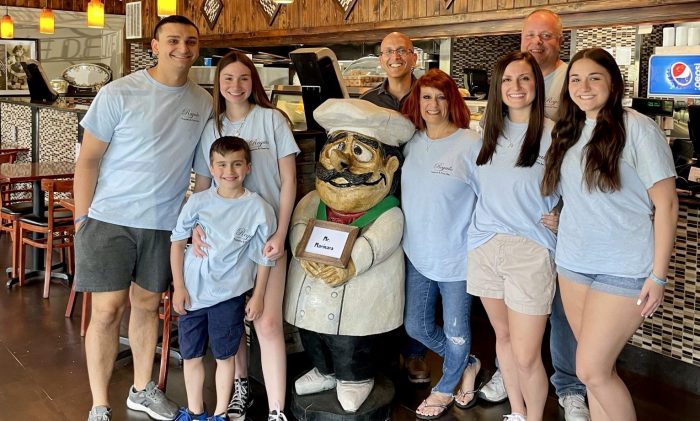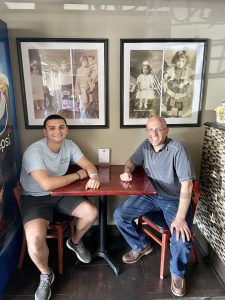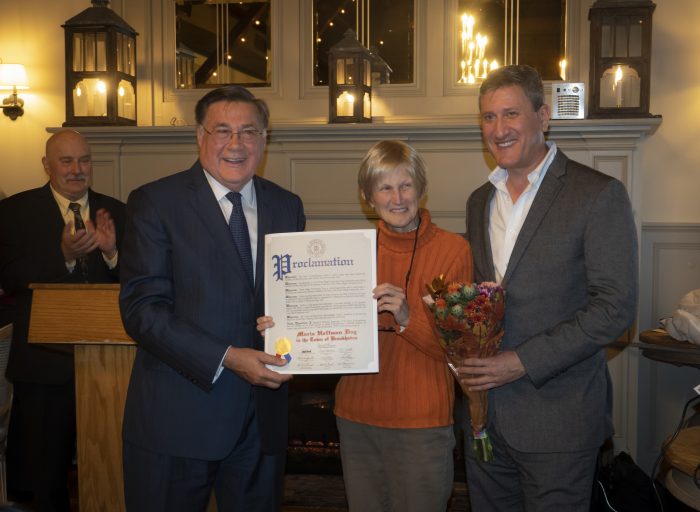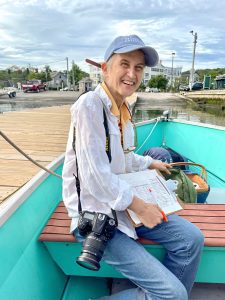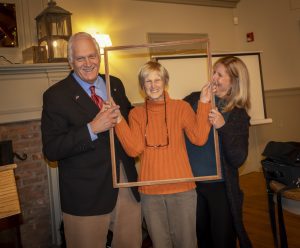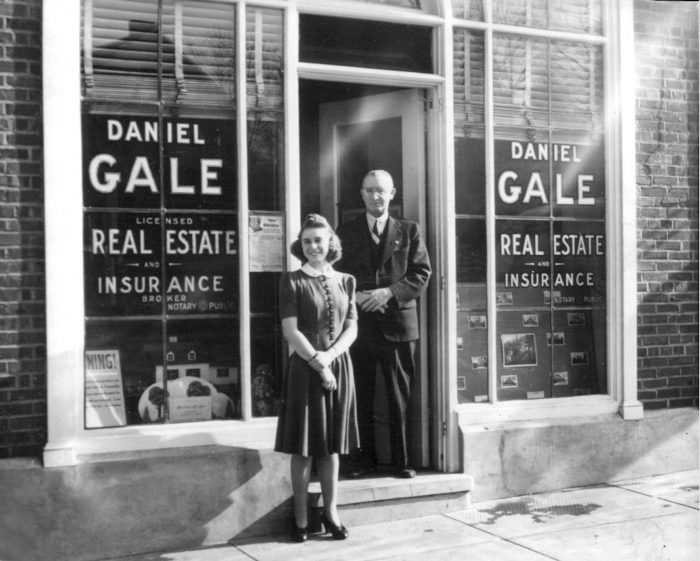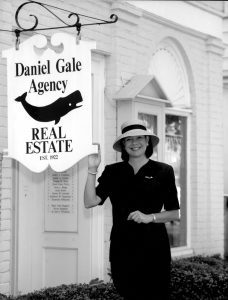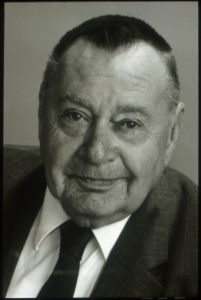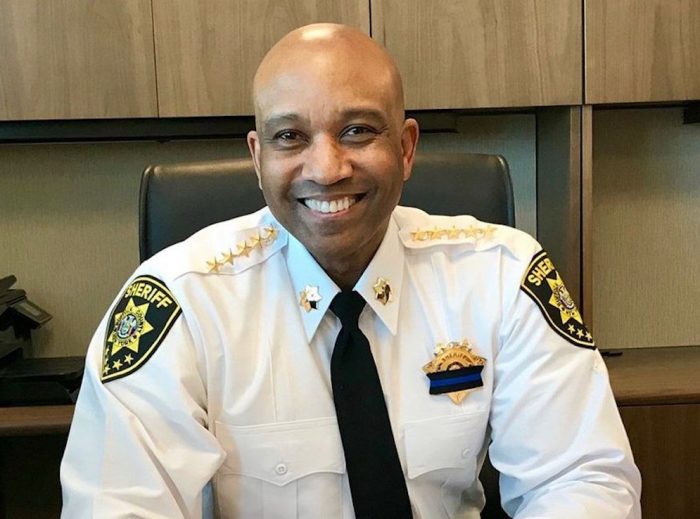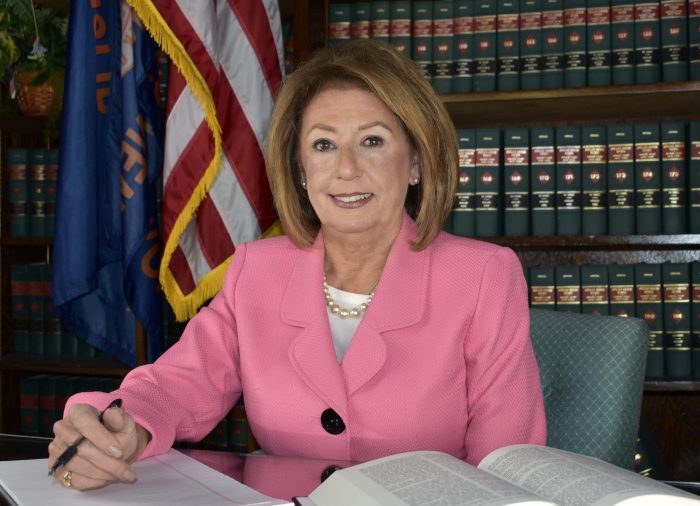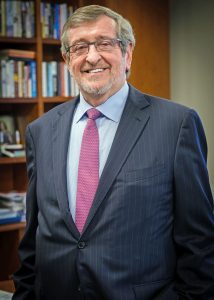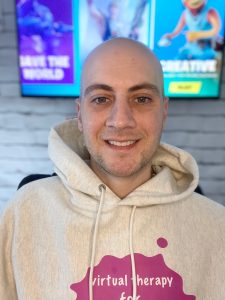Working toward an English degree, most students would never expect to become a dentist.
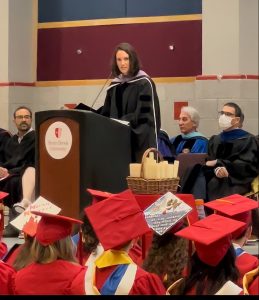
However, that’s exactly what happened to Dr. Jennifer Englebright, the speaker at the 2022 English Department Convocation at Stony Brook University. A dentist at Port Jefferson Dental Group, Englebright, who graduated from SBU in 2005, told attendees that she considered her “English degree to be of utmost importance in my career.”
“It prepared me in ways I could never have imagined, and its value has become an inherent part of my work,” she said.
The Setauket resident continued in her speech that her English degree helped with the human side of dentistry by giving her “the power and expression of language.”
“Communication is vital in helping to alleviate the stress and anxiety so many patients feel,” she said. “Uncertainty often drives fear, but by methodically explaining exactly what the procedure is, in such a way that the patient can really understand it, helps temper that fear.”
Andrew Newman, professor and chair of the English Department at Stony Brook University, said it was the first in-person convocation since 2019, and Englebright was well received by students and faculty.
“While some of our outstanding graduates go on to careers in education, law or business, Dr. Englebright demonstrates that English is also great preparation for health care providers,” Newman said. “I think she would agree that she’s a better dentist for having studied Virginia Woolf with Professor Celia Marshik.”
Englebright said in a phone interview that many people don’t realize how versatile an English degree is.
“I found my English classes to be more inspiring for my career in medicine than science classes,” she said.
She agreed that reading the works of Woolf was a major influence in her life. Her senior honors thesis was about the author.
“She was all for women’s rights and women in higher education, trying to push and drive women forward to make their own money in their own careers,” Englebright said.
She also has been inspired by the poet William Carlos Williams who was also a doctor.
“I found writers like that to be actually more inspiring to go into medicine than just pure science,” Englebright said.
In addition to majoring in English at SBU, Englebright took several science courses. She was considering different career paths while attending college and ultimately was drawn to health care, especially dentistry. She volunteered at the college’s dental school and then worked with a local dentist.
After Stony Brook, she attended The University of Pennsylvania School of Dental Medicine and graduated in 2009. She went on to do her residency at St. Charles Hospital. For the last 10 years, she has practiced at Port Jefferson Dental Group.
Englebright said science runs in her blood. Her father is state Assemblyman Steve Englebright (D-Setauket), a geologist by profession who still works at SBU occasionally. Her mother June is a retired earth science teacher.
Jennifer Englebright said both her parents encouraged her to follow her passions in life and never steered her toward any one career.
“I had complete autonomy to explore whatever I wanted to do in life, and both of my parents gave me that platform to be able to do that,” she said.
When in third grade, she, her mother and sister moved to Wading River after her parents divorced, she said. After returning from Pennsylvania and living out east and in Melville, she decided to move back to Setauket. In 2020, Englebright married Charles Regulinski, Setauket Fire Department assistant chief.
“I really wanted to come back to my roots,” she said. “I wanted to be in the Three Village area. I just love this area.”
Recently, Englebright, like many health care professionals, had to navigate her career through the pandemic.
At the beginning, dentist offices could function only during emergencies. Once doors opened to all patients, she said it was tough because there was no vaccine or any treatment for COVID-19. However, she said they didn’t have to change procedures majorly because they are always prepared to fight infections.
“We’re a very strict discipline, medicine, especially dentistry,” she said. “We’re very strict with infection control.”
She said, at first, people were hesitant to go back to the dentist, but ultimately the office rebounded as many were overdue for routine care or bad situations worsened as some people didn’t immediately attend to dental problems such as a broken tooth.
During her speech at the convocation ceremony, Englebright said she hoped she inspired the graduates to feel that they didn’t need to be “typecast to a role,” because they have an English degree.
“You don’t have to go into this expected role as a teacher or a lawyer, this traditional route,” she said. “You can really go into whatever you want, because you have the foundation to succeed in any field.”

